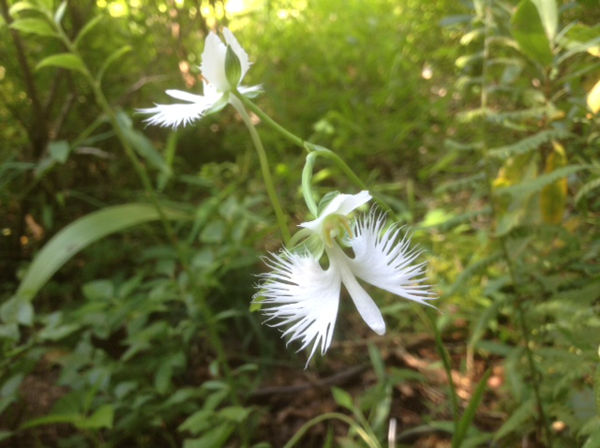
|
THE LIBERTARIAN ENTERPRISE Number 839, September 20, 2015 We are being presented with fifteen or sixteen or seventeen sorry specimens not one of whom has even the faintest idea what this country was originally supposed to be about, or regards that history as relevant Attribute to L. Neil Smith's The Libertarian Enterprise Summer Lingers in Greater Appalachia A very warm and pleasant start to Fall this year. At least here in Western Pennsylvania where after a short chilly spell it seems that summer has decided to return for a while. In our daily babble between projects—Ray from Wisconsin sent me this link amid his usual complaints that go with living directly in front of the Gates of Arctic Hell. [giant artic mosquitoes] Cripes! I vowed I probably wouldn't even bother reading it. Unless those things are the size of 747s—they could never hold a candle to alien invasions and intelligent machine takeovers triggered by global warming. Next thing you know, global war it will bring about a plague of box turtles of biblical proportions—the likes of some childhood dreams when they were blanketing the lawn and I could pick and choose the prettiest ones to fill a sack! And that would be a good thing! Ended up reading the article anyway. And then another one about the "Ecosystem Myth" Very good on a number of fronts. Good history lesson for understanding the roots of the American Progressives and their British counterparts: the Fabian Socialists who started that fascistic fever dream of a Universal State. And the treatment of the ill fated Biosphere 2 Project of the 1990s was good guide for what not to do and what to expect when setting up closed ecosystems in space. Even before the outcome of Biosphere 2—I reckoned that space habitats will never be totally closed systems and will require artificial inputs as part of their regular upkeep just as your household does. Every time an air lock is cycled, some atmosphere or water vapor is lost and gases will slowly leak through a solid structure into the vacuum of space. Much of that can be replaced by extraction via the continuation of the mining industry that built the colonies and will be the basis of the mature economy afterward. Maintaining the long term stability of the semi-closed ecosystems may be a different story. First of all—there are no truly closed systems because even a planet like Earth is an open system. It gets inputs in the way of sunlight, galactic cosmic radiation and a continuous infall of comets, asteroids and cosmic dust. It also has a buffer in the way of large reservoirs of water, atmospheric gases and minerals inherent in a whole planet. This will be the central tenant in the argument of searching for other Earths and terraforming marginally habitable worlds vs building space habitats. One offers greater long term stability—the other is less finite and more available as future living space. There were a lot of flaws in the making of Biosphere 2. First of all its builders may have tried to pack too many things into a limited space and expected them to work just like they do in Nature. And they ended up learning just like we learned from our experiences with ponds that there is a limit to species compatibility and how many you can maintain in a small ecosystem. Keeping it simple may be the key to long term success. Most island ecosystems are that way and achieve equilibrium over time by way of similar processes to the ants vs roaches phenomenon that happened in Biosphere 2. The oxygen problem I think was related to O2 binding with the newly poured concrete foundation. Similar interactions happen between the atmosphere and the limestone rocks and oceans of Earth. For the artificial biosphere the obvious solution would be to keep it open to the atmosphere until the concrete cures. Maybe even allow time for the insects, microbes and other lifeforms to sort out their relationships and form a stable ecology before attempting total closure—with the understanding that some inputs will always be required. From my own experiences with the Greenhouse—slugs were really bad in the beginning but became less of a problem over time as natural predators moved in. But now the place is really overgrown with Hammock Fern that need cut back and probably some form of restraint in the form of root barriers to restrict their spread. It's a learning curve. The people who built and operated Biosphere 2 taught us a lot just from the failures in their system. Just like some of the lessons I learned over the summer and down through the years. The willingness to keep trying should be celebrated and the later reaction described as the knee jerk nihilism of the New Left should be repudiated and scorned. Such a defeatist mindset is usually the reaction of people opposed to change to begin with who were just looking for an excuse to shut things down. Hardly a good way to live. In perpetual fear of the unknown and doomed to eventually be overtaken by existing problems rather than taking necessary risks to outgrow or transcend them. But such dreadful things seem remote like the coming winter as Summer lingers a little longer.
Just click the red box (it's a button!) to pay the author
This site may receive compensation if a product is purchased
|

